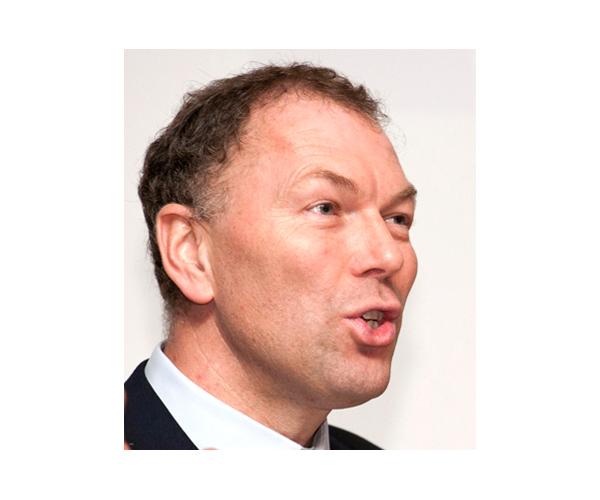Thought leaders
Spiraling costs of major sporting events

Managing Director,
EPIC
The cost of hosting major sporting events has increased rapidly in recent years and event owners have become eager to control the cost of staging games. Olympic Games costs through the past 15 years have jumped from the US$2-6bn range (1996-2002) to $10-18bn (2004-2012). The Beijing Games in 2008 (US$40+bn) and Sochi this year (US$50+bn) have been touted as the costliest in history.
Other major sporting events, such as the Pan American, Asian, Commonwealth and World University Games cost around $150-250m to organise just over a decade ago. It is estimated that organisers are now looking at investing between four and 12 times that.
‘Games inflation’ is out of control and one negative impact is that many potential Games hosts are dropping out of bid races. Stockholm, Munich, Toronto, St. Moritz, and more recently Krakow have all pulled out of bidding races citing high costs. Even cities awarded bids (Hanoi, Asian Games 2019) are reneging for similar reasons.
So, what can event owners do to limit costs and help ensure their brand stays healthy? Push harder for temporary venues? Simplify the bidding process?
This might help, but event owners have little ability to control costs when their event is used for political, economic, image or pride reasons. They do, however, have control over at least one way to significantly reduce costs: improve and quality-assure the data and information that gets passed between organizers to reduce the significant guesswork that future organisers typically face.
Host cities face an unfathomable amount of guesswork relating to the scope of services, facilities and other operations. As a result, resources are significantly and systematically over-scoped for both larger cost-drivers (such as space, equipment, vehicles and people) and smaller line items (F&B, training, signage and fuel). Organizers egregiously over-plan, commonly adding multiple contingencies and buffers to even worst-case scenario requirements.
For example, a host city might pass on to a future host the information that they provided a 145-space ‘permit parking lot’ for a sport federation or broadcaster. What might not get passed on is that no more than 20 vehicles used the parking lot at any given time.
Such examples are almost endless. To improve the situation, organisers must take responsibility for indicating realistic, essential requirements and identifying excesses that aren’t necessary, or perhaps even desirable.
For each event, organisers should target, capture, filter, contextualise and validate specific data and information – especially actual usage data for the largest cost-driving resources and for the key documents that will reduce guesswork and improve resource forecasting.
Providing future organisers with a comprehensive, guided Games-time learning experience will also help, as will creating (or revising) minimal service level standards and resource levels (benchmarks) for future organizers based on usage from prior events.
These ideas alone won’t resolve all the cost-related issues, but they are a practical way to dramatically reduce guesswork, ensure future organisers are well-informed and enabled to make better decisions, to simplify operations and significantly reduce costs.

A World Cup on artificial turf - step in the right direction?

Managing Director,
Sports Labs
The FIFA Women’s World Cup will be held in Canada next year. The plan is to host games on artificial turf – a decision that has angered many of the world’s leading female players. The players have accused FIFA of treating them as guinea pigs and using the tournament as a testing ground to see whether all future competitions could be played on synthetic surfaces.
There has been a lively debate in the US press on this subject, fuelled by the players. There’s even been a tacit threat to take legal action against FIFA for alleged ‘discrimination’ against women if the games aren’t switched to natural grass.
What makes the timing of the furore odd, however, is that the use of artificial turf should come as no surprise. The use of synthetic surfaces was part of Canada’s original bid to host the tournament. Also, it is inaccurate to claim that the tournament next year would act as some sort of experiment.
Many tournaments at the highest level have already been held – or partially held – on artificial turf. Out of the 50 Scottish League clubs, 14 now use artificial pitches each week. The reason why artificial turf is gaining leverage is because it opens up many possibilities for clubs to make use of a playing surface for competition, certainty in playing performance and revenue security.
That said, it's unlikely natural grass will be completely replaced as the preferred stadium surface anytime soon. This is because natural surfaces at major stadiums can be maintained in good condition and the amount of use can be controlled. What shouldn’t be overlooked in this debate is that humans are adaptable. Whether they play on mud, sand or artificial turf, players will modify their approach to the interaction with the surface. Hosting the games on artificial surfaces next year is not a game changer – but an evolutionary step in the right direction.

The true legacy of the Brazilian sporting dream

Director,
IMD Global Center for Sustainability
At the start of the new millennium, it looked as if there was no stopping Brazil's trajectory towards prosperity. Hosting the World Cup this year and the Olympics in 2016 was meant to be a reflection of Brazil's role in a new world order increasingly shaped by the BRICs. Seven years after the decision to hold the event in Brazil, however, optimism has waned. The country's 6 per cent GDP growth in 2007 is a distant memory. In 2013, hundreds of thousands of protesters took to the streets, demonstrating their ire against rising costs, corruption and lack of investment in public services while Brazil's World Cup is the most expensive in history.
There have been construction worker deaths, threats of strikes and increasing social discontent. The dream is not becoming reality because the benefits of these events are almost certainly overstated. Brazil's GDP is still the seventh largest in the world, but while the country produced 19 new millionaires every day since 2007 according to Forbes, inequality is at its highest ever. A full 21.4 per cent of the population lives below the poverty line, with 4.2 per cent in extreme poverty.
The experiences of Athens, Beijing and South Africa in hosting large sporting events suggest they may be right.
Can Brazil do better? Probably not, given the location and restricted future of the stadiums built at an estimated cost of US$3.6bn. So far – in Brazil – the case has not been convincing and there is little proof that tourism and investment benefits materialise when the crowds disperse.

Commercial Manager
Receptionist
General Manager
General Manager
Swim Teacher
Customer Service Advisor
Team Leader
Swim Teacher
Swimming Teacher
Swimming Teacher
Company profile

Featured Supplier

Property & Tenders
Company: Jersey War Tunnels
Company: Savills
Company: Cotswold Lakes Trust
Company: Knight Frank
Company: Belvoir Castle















